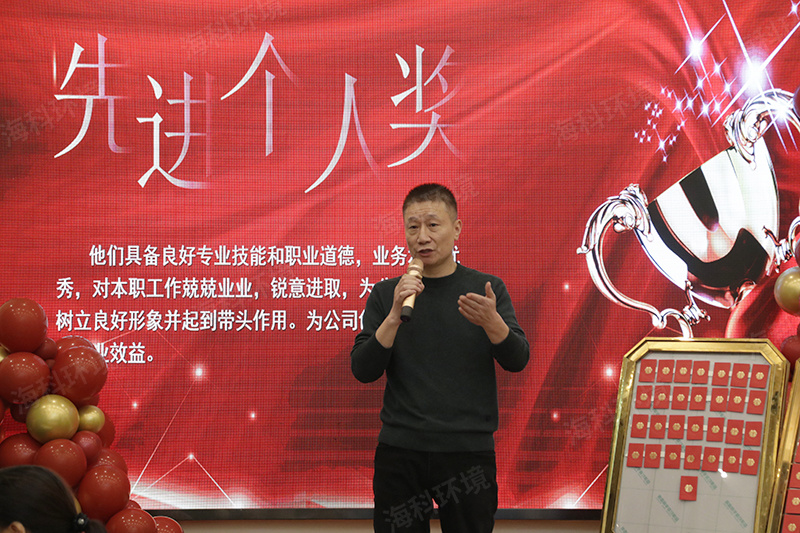ENERGY SAVING AND ENVIRONMENTAL PROTECTION EQUIPMENT AND ENGINEERING GENERAL CONTRACTING
Tel : +86 17305119688
Email :15061619658@139.com
The Future of Coal Dryers: Innovations and Benefits in Industrial Drying Technology
2025-06-16
Coal dryers are essential components in various industrial applications, particularly in the energy sector. These specialized drying systems are designed to reduce the moisture content of coal, which is crucial for improving its calorific value and overall combustion efficiency. As industries strive for more sustainable practices, the evolution of coal dryers has played a significant role in optim
Coal dryers are essential components in various industrial applications, particularly in the energy sector. These specialized drying systems are designed to reduce the moisture content of coal, which is crucial for improving its calorific value and overall combustion efficiency. As industries strive for more sustainable practices, the evolution of coal dryers has played a significant role in optimizing fuel usage and minimizing emissions.
The primary function of a coal dryer is to remove excess moisture from coal, which can significantly affect its performance. Wet coal not only has a lower energy content but also poses challenges during combustion, such as increased emissions and reduced efficiency. By employing advanced drying techniques, industries can enhance the quality of coal used in power generation and other processes. This is where the significance of coal dryers comes into play.
Recent advancements in coal drying technology have led to the development of more efficient systems that utilize various drying methods, including convection, conduction, and radiation. Each method has its specific advantages, allowing operators to select a drying technique that best suits their operational needs. For example, convection dryers are popular for their ability to provide uniform heat distribution, while conduction dryers are favored for their rapid moisture removal rates.
Moreover, the implementation of energy-efficient designs in coal dryers has become increasingly important. Innovative technologies, such as heat recovery systems and low-temperature drying, help to minimize energy consumption while maximizing drying efficiency. This not only reduces operational costs but also aligns with global sustainability goals by lowering greenhouse gas emissions associated with coal usage.
In addition to energy efficiency, coal dryers contribute to better handling and transportation of coal. Drier coal is easier to store, transport, and process, reducing the risk of spoilage and enhancing operational reliability. For industries that rely on coal as a primary energy source, investing in advanced coal drying systems can lead to significant improvements in productivity and profitability.
In conclusion, the role of coal dryers in industrial applications cannot be overstated. With ongoing advancements in technology and a growing emphasis on sustainability, investing in innovative coal drying solutions can provide industries with a competitive edge. Understanding the benefits and functionalities of coal dryers is essential for professionals in the industrial equipment sector, as it directly influences operational efficiency and environmental compliance.
The primary function of a coal dryer is to remove excess moisture from coal, which can significantly affect its performance. Wet coal not only has a lower energy content but also poses challenges during combustion, such as increased emissions and reduced efficiency. By employing advanced drying techniques, industries can enhance the quality of coal used in power generation and other processes. This is where the significance of coal dryers comes into play.
Recent advancements in coal drying technology have led to the development of more efficient systems that utilize various drying methods, including convection, conduction, and radiation. Each method has its specific advantages, allowing operators to select a drying technique that best suits their operational needs. For example, convection dryers are popular for their ability to provide uniform heat distribution, while conduction dryers are favored for their rapid moisture removal rates.
Moreover, the implementation of energy-efficient designs in coal dryers has become increasingly important. Innovative technologies, such as heat recovery systems and low-temperature drying, help to minimize energy consumption while maximizing drying efficiency. This not only reduces operational costs but also aligns with global sustainability goals by lowering greenhouse gas emissions associated with coal usage.
In addition to energy efficiency, coal dryers contribute to better handling and transportation of coal. Drier coal is easier to store, transport, and process, reducing the risk of spoilage and enhancing operational reliability. For industries that rely on coal as a primary energy source, investing in advanced coal drying systems can lead to significant improvements in productivity and profitability.
In conclusion, the role of coal dryers in industrial applications cannot be overstated. With ongoing advancements in technology and a growing emphasis on sustainability, investing in innovative coal drying solutions can provide industries with a competitive edge. Understanding the benefits and functionalities of coal dryers is essential for professionals in the industrial equipment sector, as it directly influences operational efficiency and environmental compliance.
Coal Dryer
RELEVANT INFORMATION
The 2023 Annual Meeting of Jiangsu Haike Environmental Technology Engineering Co., Ltd
2024-01-08
The 2023 Annual Meeting of Jiangsu Haike Environmental Technology Engineering Co., Ltd


 English
English Русский
Русский بالعربية
بالعربية

